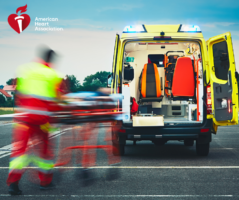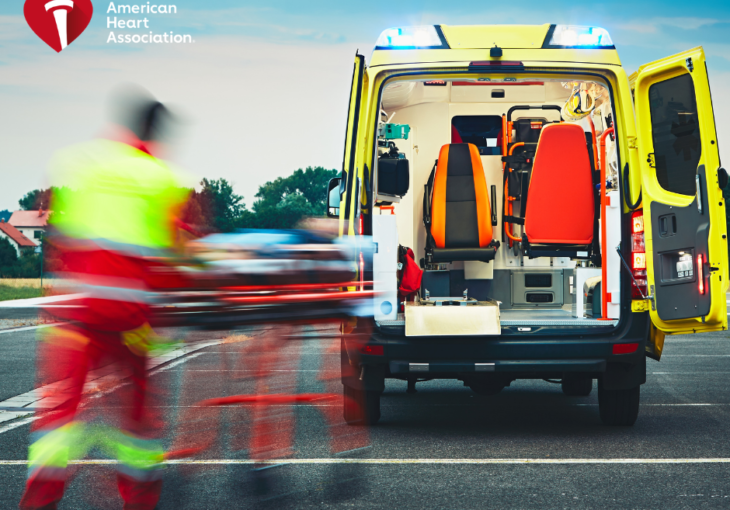 In an effort to advance care delivered to stroke patients and improve patient outcomes, New Jersey Medical and EMS leadership established the “RACE” (Rapid Arterial oCclusion Evaluation) scale as a recommended tool for EMS providers to use for stroke severity assessment, to identify patients who may be having a severe form of stroke and may benefit from advanced medical intervention. Several New Jersey hospitals, advisory groups, and other organizations have collaborated to roll out recommended training for EMS organizations statewide.
In an effort to advance care delivered to stroke patients and improve patient outcomes, New Jersey Medical and EMS leadership established the “RACE” (Rapid Arterial oCclusion Evaluation) scale as a recommended tool for EMS providers to use for stroke severity assessment, to identify patients who may be having a severe form of stroke and may benefit from advanced medical intervention. Several New Jersey hospitals, advisory groups, and other organizations have collaborated to roll out recommended training for EMS organizations statewide.
Although 87% of stroke cases are “ischemic” strokes, which are potentially treatable if the patient receives rapid treatment, all likely stroke patients should be assessed—as soon as they have symptoms—for the most severe type of ischemic stroke, called large vessel occlusion (LVO) stroke. An LVO stroke is caused by a blockage in one of the major arteries of the brain and is associated with an increased risk of death and severe long-term disability compared to non-LVO ischemic strokes.
Stroke is a leading cause of serious long-term disability and in 2020 the fifth leading cause of death in New Jersey. Most strokes occur when blood flow to part of the brain is interrupted. Without oxygen-rich blood, brain cells die. For stroke patients, time is brain, as about 2 million brains cells die per minute during a stroke emergency.
To give stroke patients the best possible chance of recovery, everyone involved in their care, starting with pre-hospital Emergency Medical Service (EMS) providers, needs to be thinking of the possibility of an LVO stroke.
“Use of a pre-hospital stroke severity scale can help EMS identify patients who may be having an LVO,” stated Dr. Mark Merlin, Chair, New Jersey Department of Health EMS Council. “This is an important step, so that hospital stroke teams can efficiently plan for patient’s needs even prior to the patient arriving at the hospital, including whether any advanced medical interventions may be needed.”
Atlantic Health System’s Overlook Medical Center, Cooper Medical School of Rowan University, and the American Heart Association collaborated with representatives from the New Jersey Department of Health’s EMS Council and Stroke Advisory Panel to develop education on the RACE stroke severity scale and other prehospital stroke care considerations and have recently launched this education statewide.
“Publicly offering RACE scale education to help all providers in the stroke system of care provide patients with high quality and appropriate care can save lives,” stated Dr. John Halperin, Chair, New Jersey Department of Health Stroke Advisory Panel. “From the moment someone calls 9-1-1 with a potential stroke, EMS can immediately begin assessing the patient and help prepare the receiving hospital for a potential stroke patient.”
The education will include a 30-minute training video for EMS Continuing Education, a brief highlight video, and written educational materials for EMS and hospitals. This education has been produced in collaboration with the New Jersey Department of Health and the Office of Emergency Medical Services, as part of its ongoing efforts to continuously improve the quality of emergency medical response. It has also been endorsed by the New Jersey Department of Health’s EMS Council, and New Jersey Department of Health’s Stroke Advisory Panel.
To learn more about ischemic stroke treatment, please visit stroke.org.
